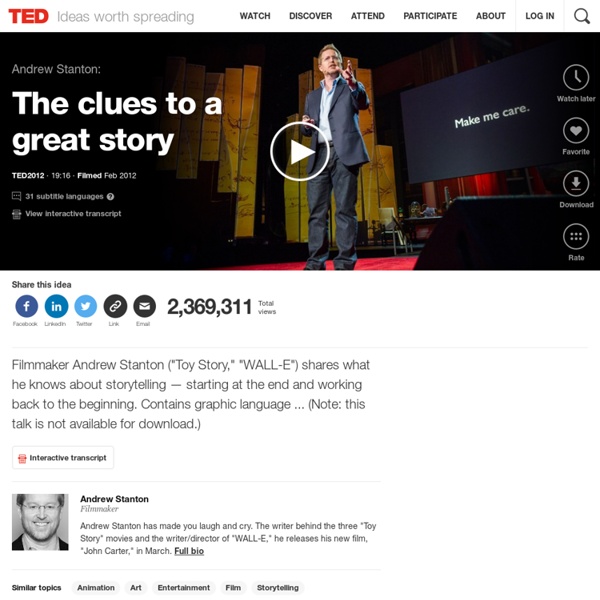



Six Famous Thought Experiments, Animated in 60 Seconds Each By Maria Popova From the fine folks at the Open University comes 60-Second Adventures in Thought, a fascinating and delightfully animated series exploring six famous thought experiments. The Paradox of the Tortoise and Achilles comes from Ancient Greece and explores motion as an illusion: The Grandfather Paradox grapples with time travel: Chinese Room comes from the work of John Searle, originally published in 1980, and deals with artificial intelligence: Hilbert’s paradox of the Grand Hotel, proposed by German mathematician David Hilbert, tackles the gargantuan issue of infinity: The Twin Paradox, first explained by Paul Langevin in 1911, examines special relativity: Schrödinger’s Cat, devised by Austrian physicist Erwin Schrödinger in 1935, is a quantum mechanics mind-bender: For more such fascination and cognitive calisthenics, you won’t go wrong with Peg Tittle’s What If….Collected Thought Experiments in Philosophy . via Open Culture
Story Starters: Creative Writing Prompts for Kids If you’re looking to inspire your students’ writing and creativity, turn to these fun and exciting writing prompts. Perfect for overcoming writer’s block or even starting a brand-new short story in a different narrative, creative writing prompts can help students begin a new piece with confidence. Plus, these story starters can also encourage students to explore different genres while honing their writing skills. Reading a book in a genre, then having students use a story starter in that same genre. Take inspiration from classics like Treasure Island and newer popular series like The Bad Guys to explore how to write thrilling adventure stories. You’re part of a pirate crew in search of a long-lost storied treasure trove. Get students excited about adventure stories with these great books: If you’re looking to inspire your students’ writing and creativity, turn to these fun and exciting writing prompts. You’re part of a pirate crew in search of a long-lost storied treasure trove.
How to Write with Substance and Improve Your Communication 197 Educational YouTube Channels You Should Know About - InformED : Non-Fiction Writing General Non-Fiction Ideas / Resources: Activity Clues - A fun writing task which requires children to think of clues related to particular activities. Write to Santa! - Send a letter to Santa at Christmas, and receive a reply too! Describing Yourself - A game, useful for the beginning of term, which helps you and the children get to know each other. Persuasive Writing / Adverts: Persuasive Words and Phrases - A selection of words and phrases which children can use within their own persuasive writing. Discussion: Discursive Writing - A discursive text (in PDF) with a framework. Explanations: Postcards - A fantastic way for the children to tell you about their holidays, encouraging independent writing without intimidating them.
10 tips for editing video in a thoughtful, compelling way By Kari Mulholland One of TED’s video editors, Kari Mulholland, hard at work. Below, her editing advice. The techniques that video editors use to shape their content reveal a lot about how people create meaning in the world. The TED Talk editing toolkit is small when compared to ones used to cut a narrative feature or documentary. Now, compare that to the same excerpt edited competently. What made the first excerpt so uncomfortable to watch was that the edits were unmotivated; every edit was random. Choose the best camera angles for each moment. Now the “um” is edited out, by cutting between two shots during an action-filled moment. Think about who’s speaking and who’s listening. Now let’s watch the same excerpt edited like a TED Talk. The edits are motivated by the words spoken by both Chris and Bill. All of a sudden, the point of view of the interview shifts. Take some space from your edit. Hope that these tips have been helpful. Kari Mulholland is a Film + Video Editor at TED.
Free Visual Dictionary & Thesaurus | Online Dictionary | Associated Words | Synonyms Dictionary at SnappyWords.com Politics and the English Language Cover of the Penguin edition "Politics and the English Language" (1946) is an essay by George Orwell that criticised the "ugly and inaccurate" written English of his time and examines the connection between political orthodoxies and the debasement of language. The essay focuses on political language, which, according to Orwell, "is designed to make lies sound truthful and murder respectable, and to give an appearance of solidity to pure wind". Summary[edit] Orwell relates what he believes to be a close association between bad prose and oppressive ideology: In our time, political speech and writing are largely the defence of the indefensible. One of Orwell's points is: The great enemy of clear language is insincerity. The insincerity of the writer perpetuates the decline of the language as people (particularly politicians, Orwell later notes) attempt to disguise their intentions behind euphemisms and convoluted phrasing. Orwell discusses "pretentious diction" and "meaningless words".
Future: Writing Styles and Forms Writing Styles and Forms Writing in Context provides you with the opportunity to explore a variety of writing styles. In approaching the task, you are to write in an expository, persuasive and imaginative style. Within each style of writing there is a wide range of forms. This page explains the three different styles and different forms of writing (each with explanatory links). Overview Persuasive texts Sets out to argue and prove a case Aims to convince targeted audience of the validity of a viewpoint on an issue by presenting logical argument Presents ideas that follow in logical progression Anticipates and answers possible objections or opposing arguments Presents well researched evidence to support the case Provides facts from reputable authorities and research to prove, or disapprove, a position Written with precision and authority Expository texts The intention is to explain, describe or interpret a situation, issue or event. Imaginative texts back to top back to top